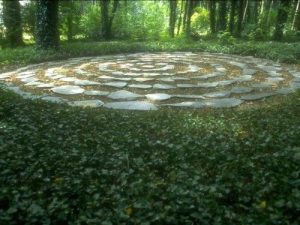 The Yogabliss, Two Rivers/RiverTree Yoga on-line Moving into Meditation classes met this morning. We practiced investigating our experience of being – body, heart and mind. We allowed whatever surfaced in awareness just to be – without having to change it in any way. We can experience ourselves as nature and encounter all our creatureliness without judgment. Like all living things, we are conditioned by experience. We form beliefs and views which shape the way we grow and learn. Mindfulness/Heartfulness practice allows us to recognize how beliefs and views operate for better or worse.
The Yogabliss, Two Rivers/RiverTree Yoga on-line Moving into Meditation classes met this morning. We practiced investigating our experience of being – body, heart and mind. We allowed whatever surfaced in awareness just to be – without having to change it in any way. We can experience ourselves as nature and encounter all our creatureliness without judgment. Like all living things, we are conditioned by experience. We form beliefs and views which shape the way we grow and learn. Mindfulness/Heartfulness practice allows us to recognize how beliefs and views operate for better or worse.
We drew inspiration from Jane Hirshfield’s beautiful poem, Metempsychosis. This term refers to the supposed transmigration at death of the soul of a human being or animal into a new body of the same or a different species. Jane’s poem explores the realization of our inter-being.
We also heard teachings about how views operate in our lives from Insight Meditation teacher, Andrea Fella. In her recent interview with Dan Harris, Uprooting Your Delusions,
she describes how mindfulness practice gives us a chance to reveal the many unknown beliefs that inform who we think we are and how we behave in the world.
Relaxed Reflection
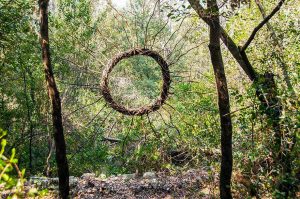 Sitting in mindfulness, we become aware of thoughts . . . memories . . . plans . . . impulses . . . Notice if your mind is resisting or struggling with your experience . . . How am I relating to this? This practice is about coming to accept the truth of things as they are . . . in each moment . . . See if you can be with the truth of your experience . . . pleasurable relaxation . . . anxious tension . . . fatigue or impatience . . . See if you can let there be some space for that in your awareness . . . not having to fix it or judge it . . . See if you can feel breathing or sensation in your body as you continue to experience different states of being . . .
Sitting in mindfulness, we become aware of thoughts . . . memories . . . plans . . . impulses . . . Notice if your mind is resisting or struggling with your experience . . . How am I relating to this? This practice is about coming to accept the truth of things as they are . . . in each moment . . . See if you can be with the truth of your experience . . . pleasurable relaxation . . . anxious tension . . . fatigue or impatience . . . See if you can let there be some space for that in your awareness . . . not having to fix it or judge it . . . See if you can feel breathing or sensation in your body as you continue to experience different states of being . . .
You can observe how experiences naturally come and go . . . Whatever’s occurring can be the object of your meditation . . . See if you can be mindful, clearly knowing and understanding what’s happening in each moment . . . a sound, a thought, a word, an image a sensation arise . . . Notice the impulse to add to the experience by . . . telling a story . . . attributing motivation . . . giving explanation . . . Can you take a step back into the ground of uncertainty . . . of not knowing why this is happening . . .? Staying with the experience of feeling and observing . . . aware of any changes . . .
In the Heart of Haiku poet Jane Hirshfield writes “. . . if you see for yourself, hear for yourself, and enter deeply enough this seeing and hearing, all things will speak with and through you.”
 In the space of time we can know anxiety, anger, fear . . . Gradually we see this too is nature – a natural process . . . like trees growing. A tree grows because a seed was planted. It experiences a lifetime of conditions to absorb and grow. . . . Emotions emerge from the living ground of experience . . . Beliefs, ideas, views, often surface with a sense of unease, stress or dissatisfaction . . . We can stay with how that feels in the body. Feeling breathing and the unpleasant sensations . . . and then asking the question . . . ‘What is being believed right now?’ Simply letting the mind orient with the question . . . to see something from a different perspective . . .
In the space of time we can know anxiety, anger, fear . . . Gradually we see this too is nature – a natural process . . . like trees growing. A tree grows because a seed was planted. It experiences a lifetime of conditions to absorb and grow. . . . Emotions emerge from the living ground of experience . . . Beliefs, ideas, views, often surface with a sense of unease, stress or dissatisfaction . . . We can stay with how that feels in the body. Feeling breathing and the unpleasant sensations . . . and then asking the question . . . ‘What is being believed right now?’ Simply letting the mind orient with the question . . . to see something from a different perspective . . .
We may or may not get an answer. We continue being mindful . . . and sometimes, something – a view, or belief – that’s been hidden is revealed. We can start to learn about it . . . We can meet it with curiosity. We can meet it as another natural expression of human being . . . We don’t have to take it on – “I am this belief .“ We greet a belief understanding it is impermanent like everything in nature. Jane Hirshfield’s beautiful poem describes meeting experience as encountering nature:
Metempsychosis
Some stories last many centuries,
others only a moment.
All alter over that lifetime like beach-glass,
grow distant and more beautiful with salt.
Yet even today, to look at a tree
and ask the story Who are you? is to be transformed.
There is a stage in us where each being, each thing, is a mirror.
Then the bees of self pour from the hive-door,
ravenous to enter the sweetness of flowering nettles and thistle.
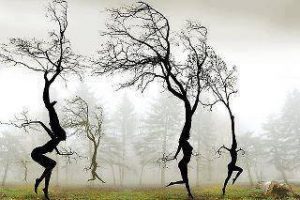 Next comes the ringing a stone or violin or empty bucket
Next comes the ringing a stone or violin or empty bucket
gives off —
the immeasurable’s continuous singing,
before it goes back into story and feeling.
In Borneo, there are palm trees that walk on their high roots.
Slowly, with effort, they lift one leg then another.
I would like to join that stilted transmigration,
to feel my own skin vertical as theirs:
an ant-road, a highway for beetles.
I would like not minding, whatever travels my heart.
To follow it all the way into leaf-form, bark-furl, root-touch,
and then keep walking, unimaginably further.”
― Jane Hirshfield, Given Sugar, Given Salt
Here we are together forming a circle of care in which we mind whatever travels the heart. We train in this minding so, as Jane writes, when we can “. . . look at a tree and ask the story Who are you? is to be transformed.” We really encounter Tree as a living being, as a living expression of awareness. We encounter something of ourselves in that tree.
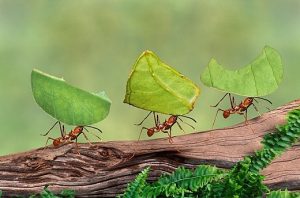 We enter the “. . . stage in us where each being, each thing, is a mirror.” The boundary between human and tree falls away. There is such sweetness in this recognition of shared being. We realize ourselves as part of the inexplicable beauty and urgency of life as “. . .the bees of self pour from the hive-door, ravenous to enter the sweetness of flowering nettles and thistle.”
We enter the “. . . stage in us where each being, each thing, is a mirror.” The boundary between human and tree falls away. There is such sweetness in this recognition of shared being. We realize ourselves as part of the inexplicable beauty and urgency of life as “. . .the bees of self pour from the hive-door, ravenous to enter the sweetness of flowering nettles and thistle.”
What are the bees of self? We tend to think of the self as a single, solid thing, a body of sorts. Can you imagine the self as buzzing bees of sensations, emotions, thoughts, hungry for life experience? Can you imagine the self as the many experiences that have conditioned us from the moment we are born? Our beliefs and views develop in this natural process of living. Views and unconscious biases continue to inform our perceptions and actions.
Insight Meditation instructor Andrea Fella describes:
. . . the process of conditioning is nature. . . .What we are conditioned by is nurture, so the field we find ourselves in, the soup we find ourselves in that we absorb these flavors . . . that is nurture. But the fact that we absorb flavors, that’s nature. . . . it’s human. . . . It’s natural . . .
Jane reminds us: “As water given sugar sweetens, given salt grows salty,
we become our choices.” Jane Hirshfield, Given Sugar, Given Salt
Andrea explains it’s not a problem until it is – until our views are challenged. She says:
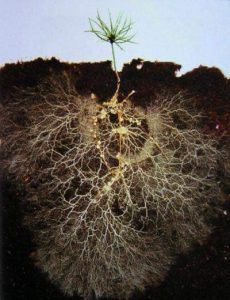 Views and ideas . . . are where all the isms come from, racism, sexism, gender ism, ageism, because we’ve absorbed particular views around what particular genders or races are capable of and who they are. So we’ve absorbed those. It’s not our fault that we’ve absorbed them. Because we’ve been in that stew, but it’s now our responsibility to see that it is a stew, that it is that flavor. . .
Views and ideas . . . are where all the isms come from, racism, sexism, gender ism, ageism, because we’ve absorbed particular views around what particular genders or races are capable of and who they are. So we’ve absorbed those. It’s not our fault that we’ve absorbed them. Because we’ve been in that stew, but it’s now our responsibility to see that it is a stew, that it is that flavor. . .
. . . as we become aware . . . of this view, this . . . bias that’s kind of hidden . . . then there’s a little more opportunity for choice. And we can also begin to see . . . this view is operating and affects how we see the world. . . When . . . views are challenged, when we come across somebody who has a different perspective, that’s often when we feel the suffering of it. . . . That can be a time to get curious. . . . That’s a great avenue to compassion . . .
Sometimes awareness begins in our bodies – our bodies tell the truth. We experience a sense of agitation, tension or unease . . . breathing constricts . . . heart beat quickens. Our tendency is to avoid what’s unpleasant. It takes courage and compassion to slow down long enough to be with the experience. As meditation instructor, Oren Jay Sofer, teaches: We cultivate courage for what matters most to us. Compassion arises when we realize that we are not alone – we are in this soup together. We are all vulnerable. We live with change and uncertainty.
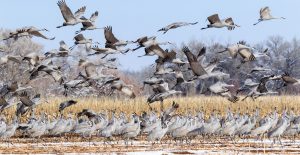 We are relational creatures. There is a deep part of us that yearns to connect. Our well being depends on everyone’s well being. Our sense of caring is often motivation to be with difficult experience long enough to learn from it. When conditions are right we begin. We feel it . . . Breathe with it . . . We can drop into a question . . . ‘What is this teaching me?’ ‘How can I be in relationship with this?’ We breathe with the question. We allow answers to be revealed. Our curiosity and kindness create the space for understanding to unfold. Our understanding allows us to relate to the beliefs and views underlying our unhappiness.
We are relational creatures. There is a deep part of us that yearns to connect. Our well being depends on everyone’s well being. Our sense of caring is often motivation to be with difficult experience long enough to learn from it. When conditions are right we begin. We feel it . . . Breathe with it . . . We can drop into a question . . . ‘What is this teaching me?’ ‘How can I be in relationship with this?’ We breathe with the question. We allow answers to be revealed. Our curiosity and kindness create the space for understanding to unfold. Our understanding allows us to relate to the beliefs and views underlying our unhappiness.
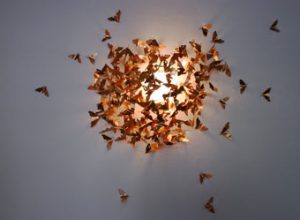 Jane writes “I would like not minding, whatever travels my heart.” Yet we won’t likely win a struggle with the reflexive and self-protective conditioning that travels our hearts. And we can acknowledge our humbling predicament. We still yearn for relationship . . . to join others on the path. Like the trees of Borneo walking unimaginably further . . . we make our way slowly carrying our hearts with us.
Jane writes “I would like not minding, whatever travels my heart.” Yet we won’t likely win a struggle with the reflexive and self-protective conditioning that travels our hearts. And we can acknowledge our humbling predicament. We still yearn for relationship . . . to join others on the path. Like the trees of Borneo walking unimaginably further . . . we make our way slowly carrying our hearts with us.
